
Drive performance from strategic plan to customer experience
Intelligent Planning for Fashion and Luxury retailers
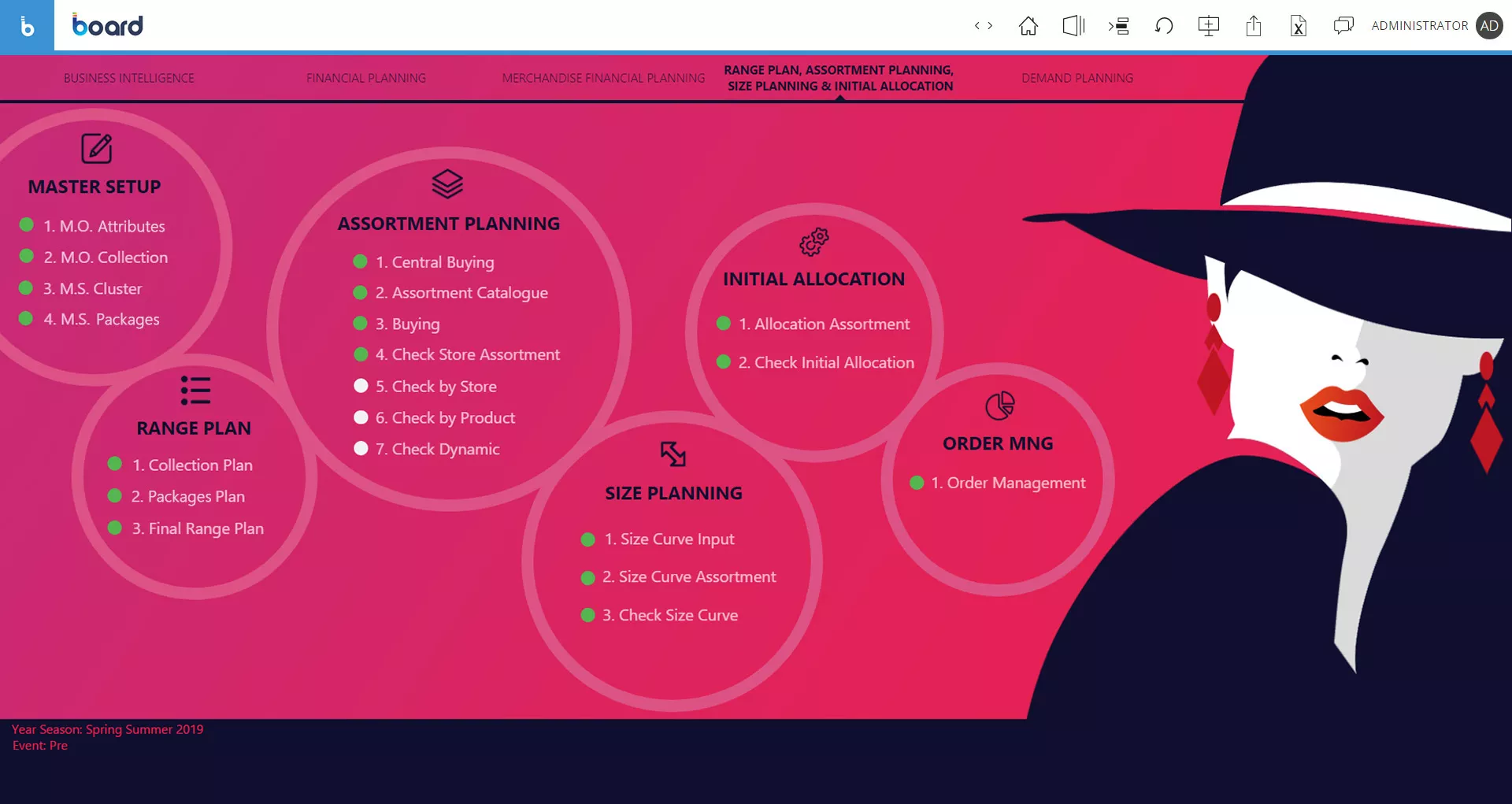
Faced with an unpredictable market, new sources of competition, and tightening margins, fashion and luxury retailers are under increasing pressure to meet customer demands while remaining profitable. As an Intelligent Planning Platform, Board transforms fashion retail planning by providing all the tools required to analyze performance and use the resulting insights to make accurate plans and fast, effective, informed decisions.
Gain complete visibility of performance with powerful Retail Analytics
Produce in-depth analyses from supplier to store, based on an accurate foundation of data.
Achieve a holistic view of the business
Create a central hub for all retail and economics data, transforming it into actionable insight through interactive dashboards and reports
Perform in-depth analysis down to store & SKU level
Analyze data efficiently and effectively at any level of the organization, from aggregated product ranges to individual SKUs
Enable users to undertake their own analysis
Board’s self-service interface enables users to analyze data quickly and with ease, helping them to speed up decision-making
Integrate BI and Planning
Link historical data with planning and forecasting in a single solution, enabling you to compare multiple scenarios and plans for better decision-making
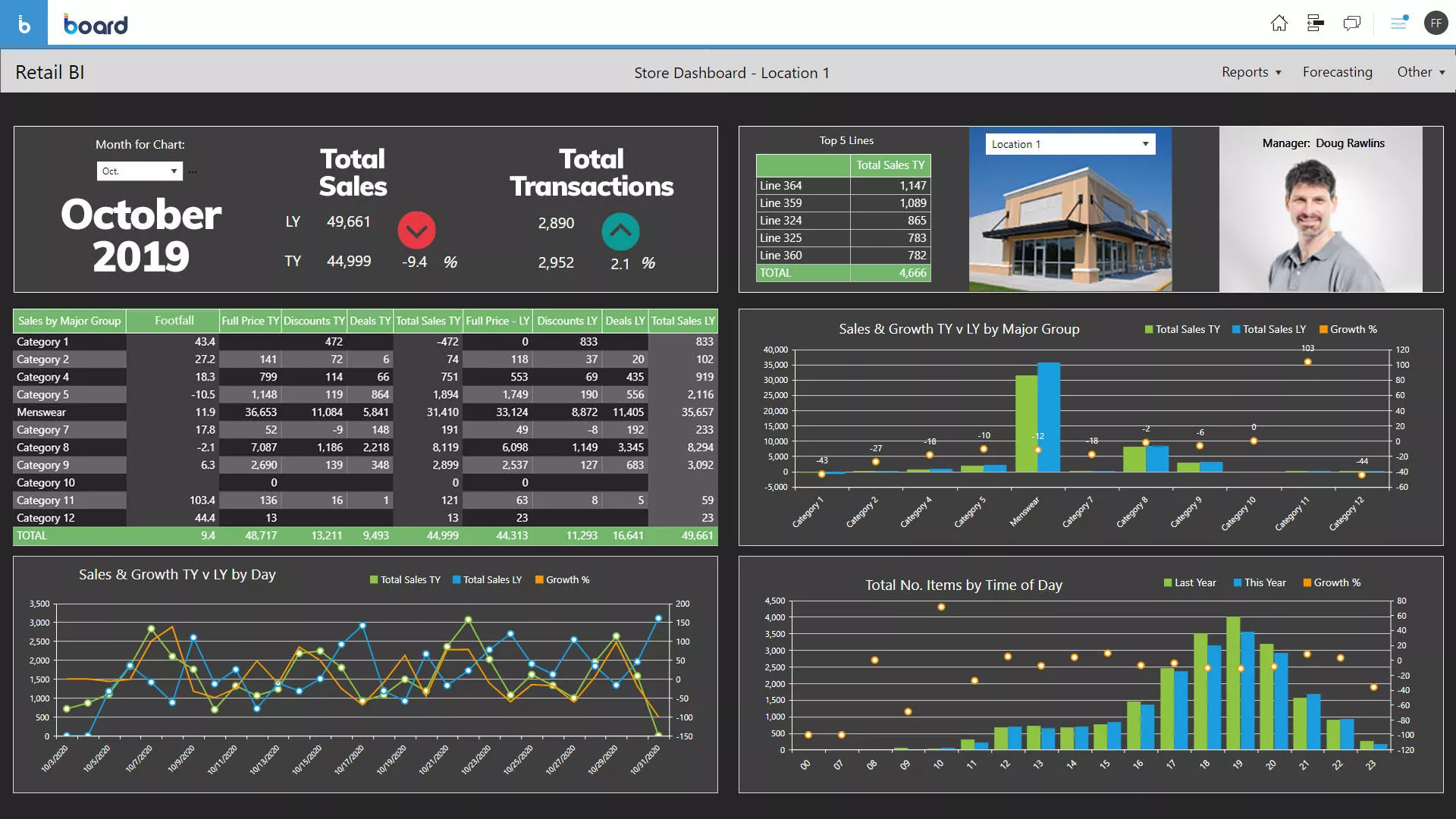
Transform your Strategic Retail Planning process
Create more informed retail strategies which are linked to financial and operational goals and based on full transparency of activity across your entire portfolio.
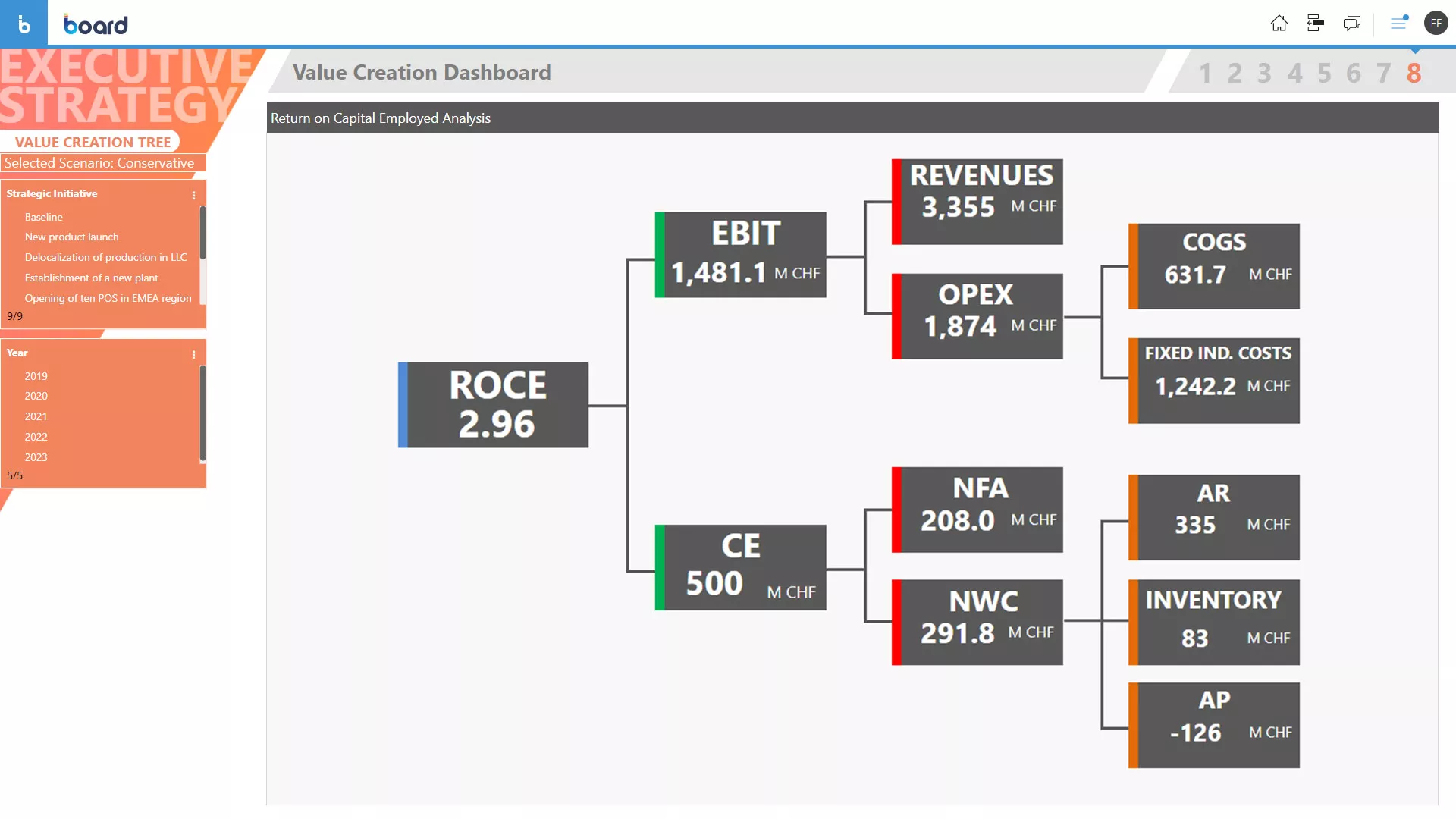
Gain complete visibility of performance
Unify macro-economic data from supply statistics through to sales figures
Formalize strategic initiatives with ease
Easily manage the creation and review of business initiatives such as M&A, delocalization, and the launch of new brands or products
Model the outcome of your plans before taking a decision
Create different scenarios to assess the impact of your initiatives on company value creation
Set short, mid, and long-term goals
Set and monitor budgets for various time periods, in line with projected performance
Take a more informed approach to Retail Financial Planning
Ensure you have access to the latest information from all business departments to form accurate, well-informed financial plans.
Turn strategic goals into financial targets
Derived from the strategic plan, distribute the initial targets and financial goals at brand/region/channel level, taking into account Cost of Goods Sold and information from other departments such as Marketing and HR
Understand the financial impact of strategic and operational initiatives
Combine and standardize data business-wide to create clarity and see the correlation between strategic/operational initiatives and their associated cost
Automate time-consuming financial processes
Remove the need to manually collect and consolidate financial data for reporting and analysis, freeing up the finance team to focus on more strategic initiatives
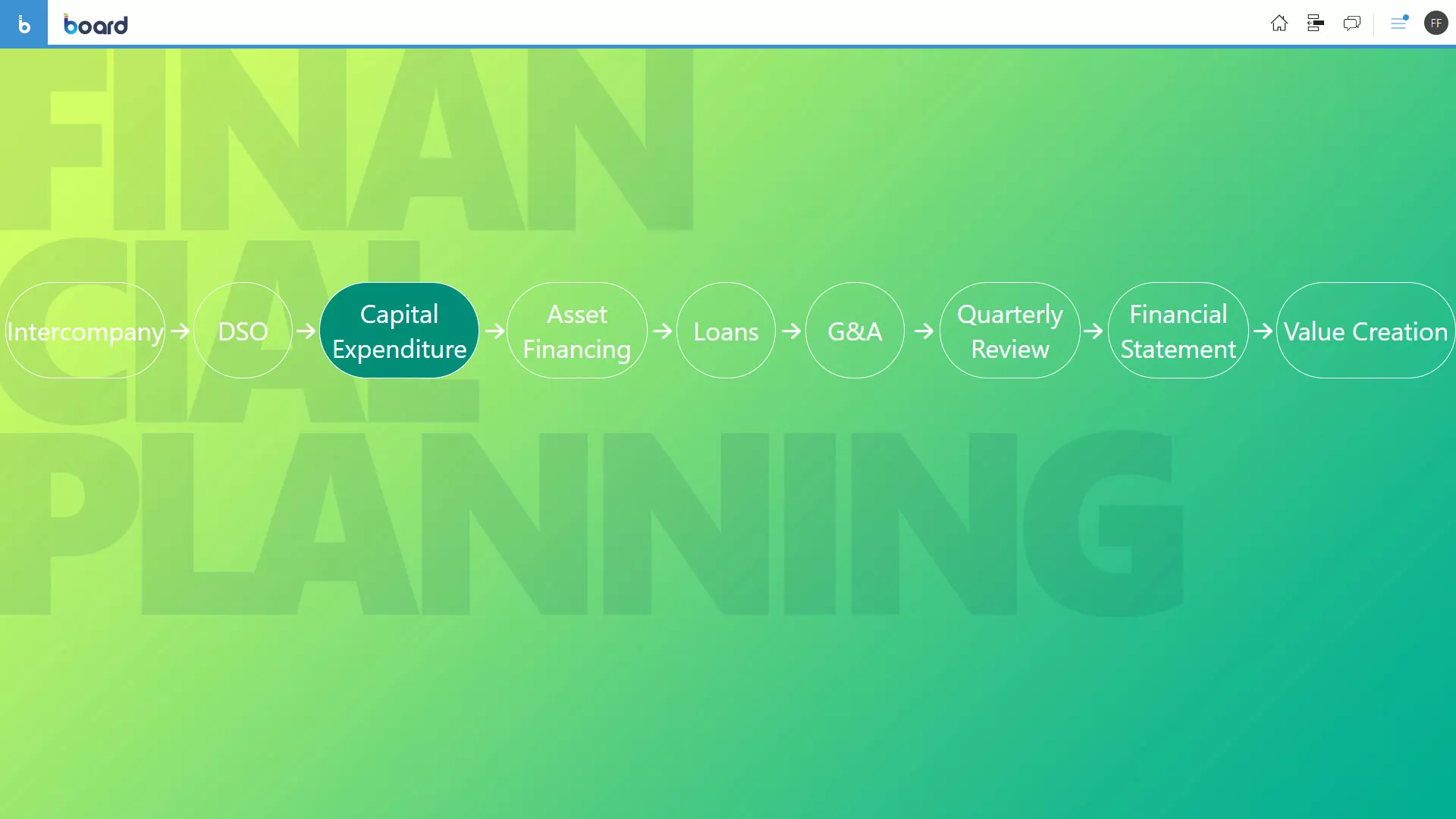
Enhance your Merchandise Financial Planning activities
Linked to your Financial Planning and Budget, ensure the effective pre-season planning of sales, margins, and stock in this key pre-season process that links high-level strategic targets and goals with operational activity.
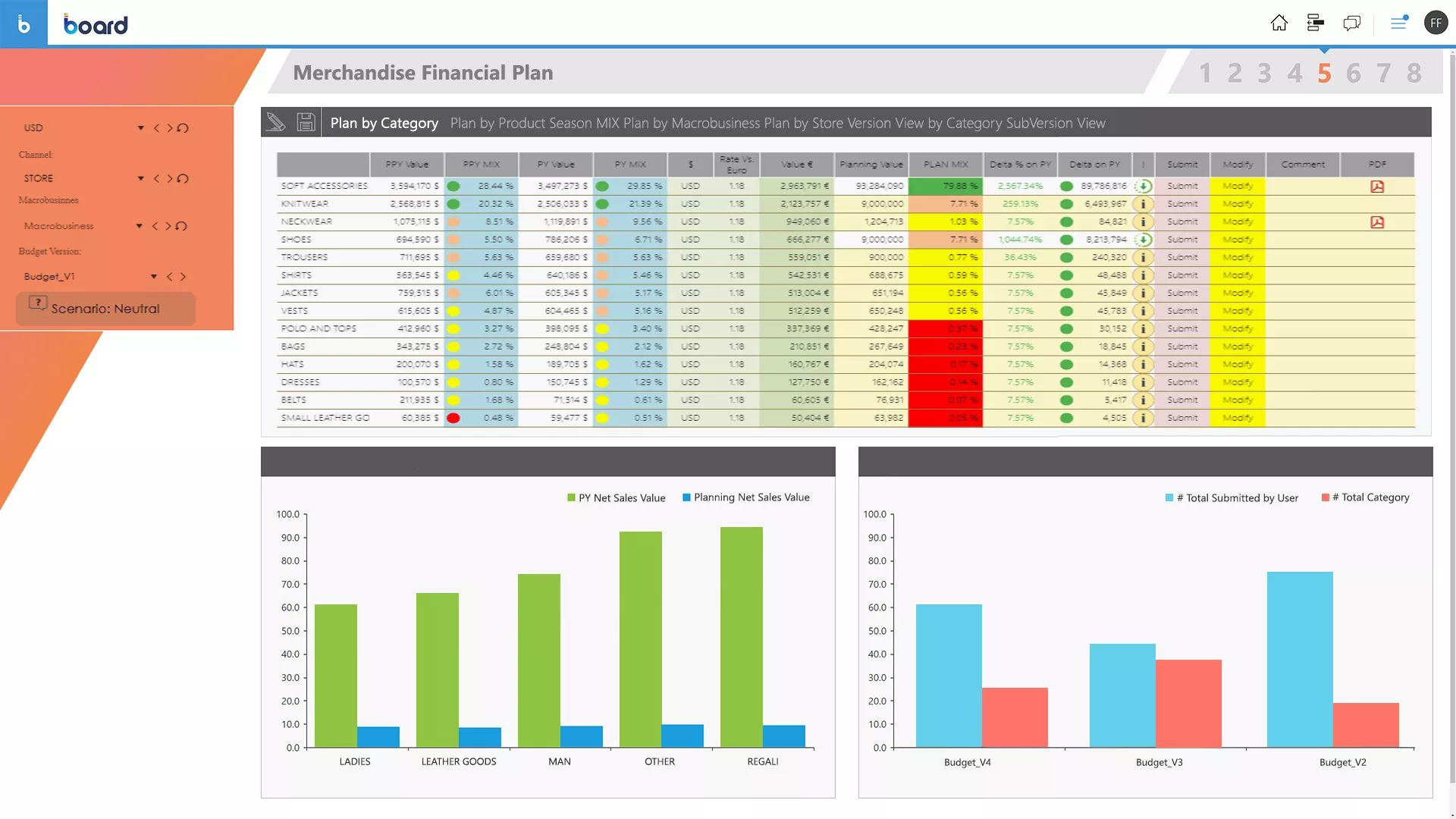
Integrate planning across all sales channels
Effectively plan sales by brand and channel, splitting on category by month/week, phase of the collection, and capsules over the year
Effortlessly manage markdowns
Automatically calculate margins, assessing the impact of the markdowns and taking closing inventory level into consideration
Easily undertake purchase planning
Define initial stock levels and the strategic allocation, taking into account weeks of coverage, stock turn, and balancing of the supplier network
Quickly determine your Pre-Season Open-to-Buy (OTB)
Explore different scenarios for future order commitments by category and month
Increase the accuracy of Range & Assortment Planning
Enable the development of a credible offer that fits into your stores, delivers on your customers’ expectations, and meets your commercial objectives.
Set up master products with ease
Easily define detailed attributes and goals at category and model level
Gain greater understanding of performance by store attributes
Cluster stores according to qualitative and quantitative criteria
Quickly define a range and collection plan
Define the depth and width of the assortment cluster by cluster, assigning OTB budget to every category based on Merchandise Financial Planning targets
Empower merchandisers to select the right offering with a click
An assortment catalogue, with a visual representation of SKUs, enables merchandisers to create collections quickly and easily
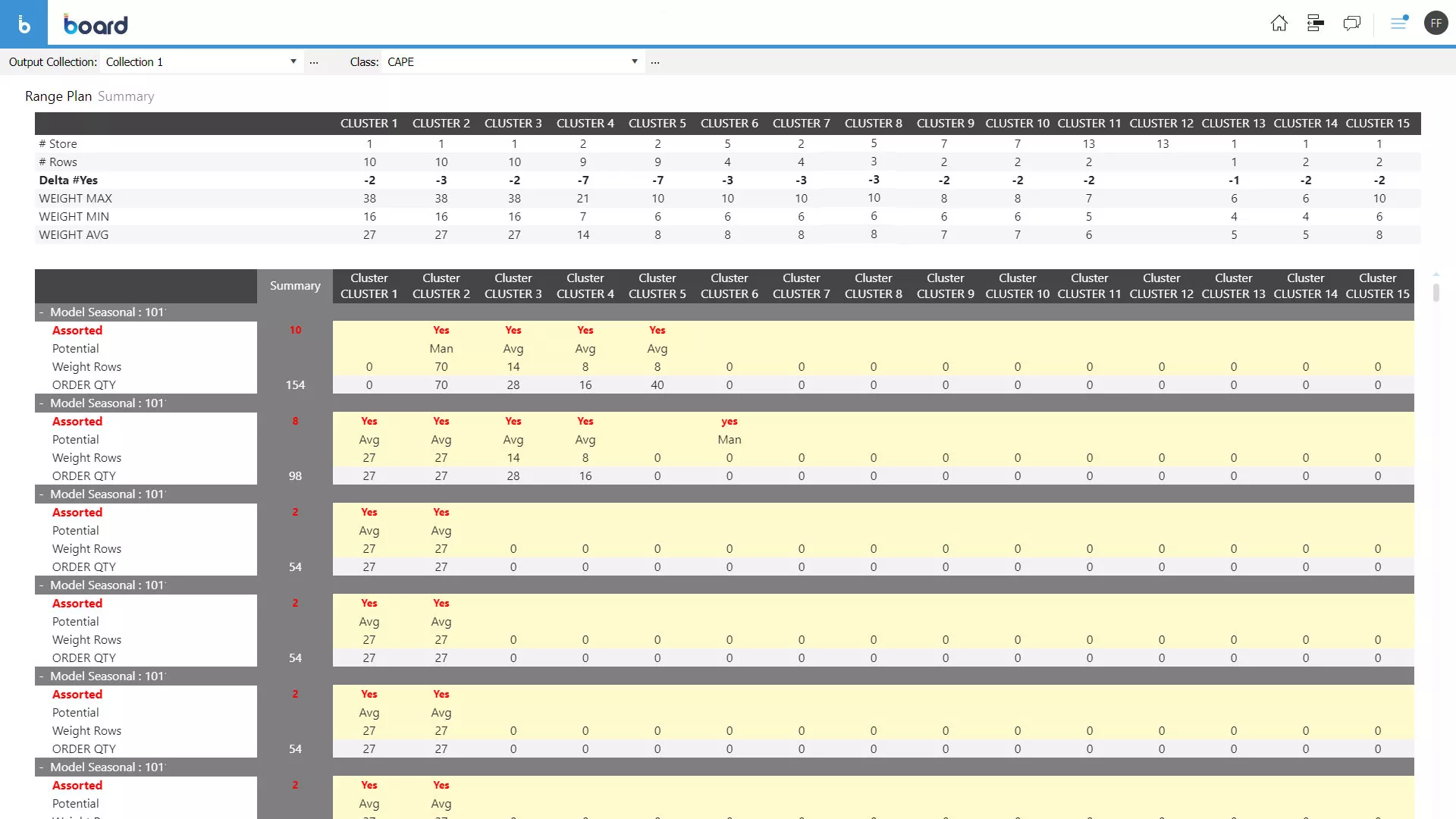
Easily manage Size Planning & Initial Allocation
Develop a consistent process for size curve analysis and planning.
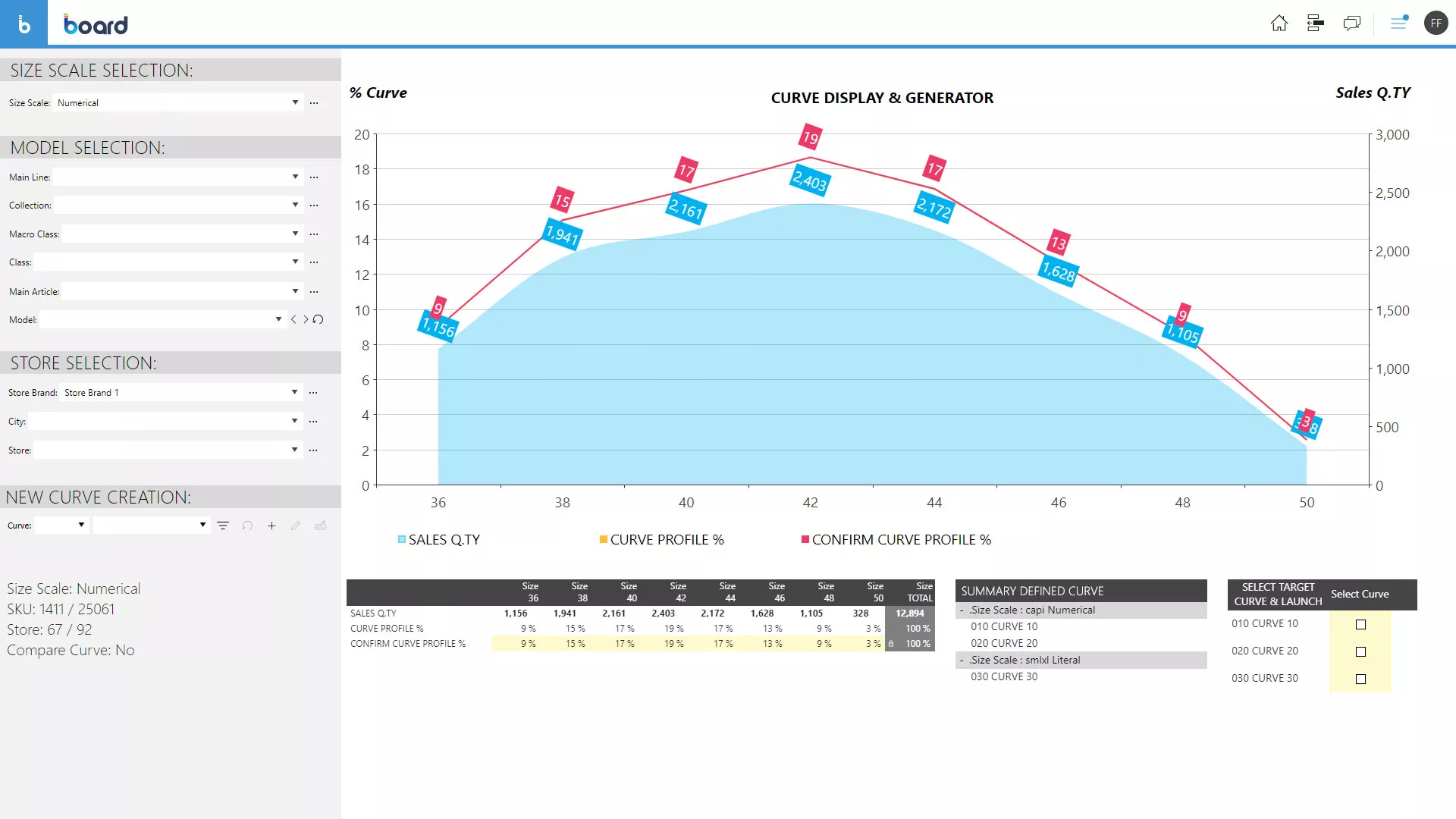
Create accurate size profiles with ease
Effectively manage the creation of a library of sales curves based on historical data and patterns
Quickly determine SKU order quantity by size/store
Based on the targets and OTB budget, automatically calculate the quantities of SKUs to be ordered at size/store level
Automate your initial allocation process
Calculate the optimal quantity to be delivered to stores, size by size, taking into account the weeks of display, demand coverage, and supply chain lead times
Take complete control of Store & DC Replenishment
Ensure the right stock is available in the right place at the right time.
Effectively manage supply chain lead times
Easily set the key parameters of the supply chain - production and logistics lead times, pack sizing, and logistics constraints - at aggregated level and assign them automatically to stores
Easily control stock across your network
Enabling the definition of target stock level and days of coverage at store/week level
Accurately forecast future demand
Use predictive algorithms to determine future demand for replenishment calculation. Different profiles of demand can be assessed in parallel, together with alternative distribution scenarios
Quickly calculate store replenishment requirements
Combining supply chain settings, target stock levels, and demand, calculate replenishment orders for the distribution network
Determine distribution center replenishment needs
Once store needs have been determined, aggregate the demand for the Distribution Centers and calculate replenishment quantities for suppliers
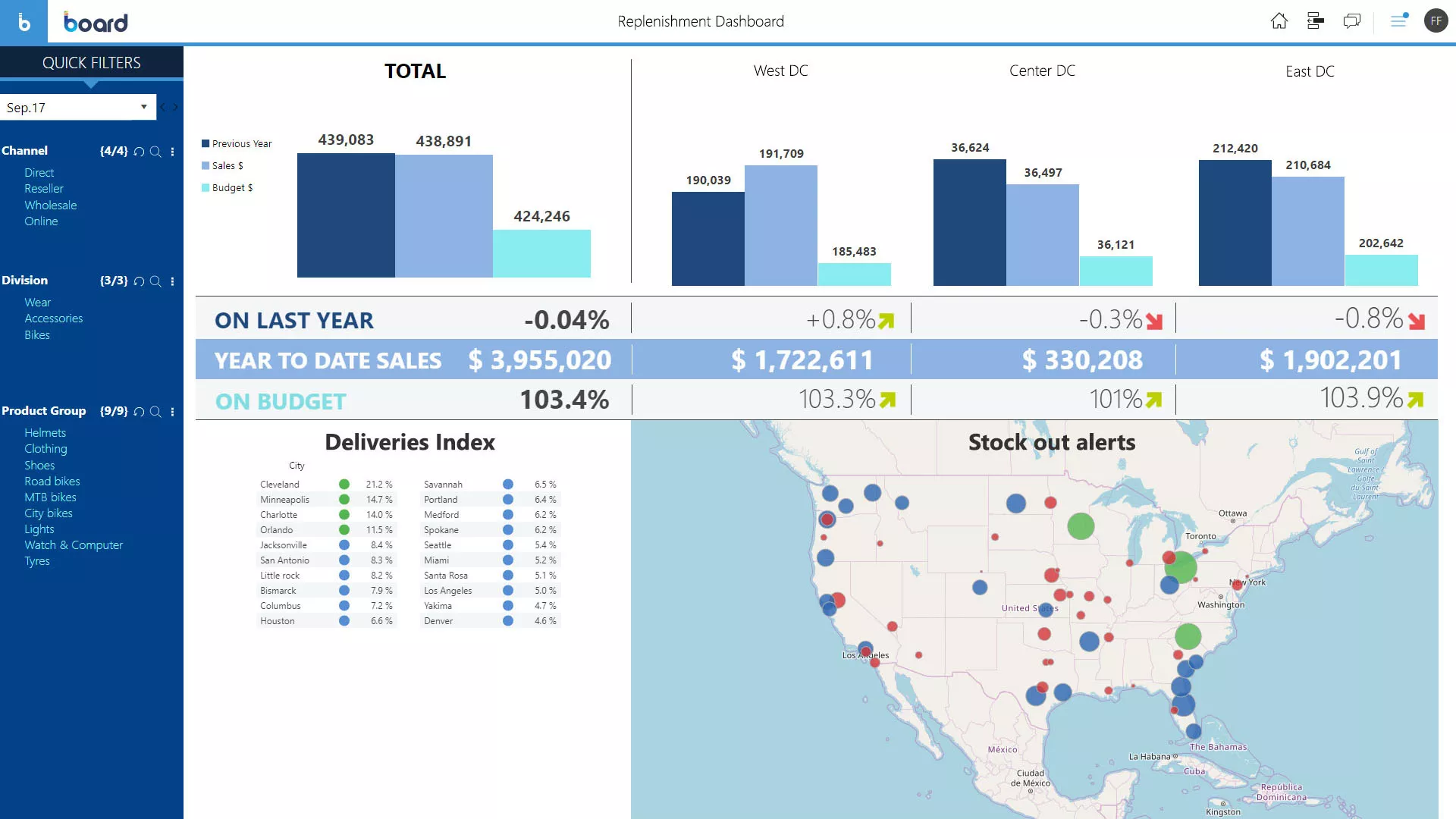
Effectively manage Weekly Sales, Stock and Intake (WSSI)
Ensure the effective control and distribution of inventory based on a combination of sales, forecast, and stock data to maximize profitability and minimize waste.
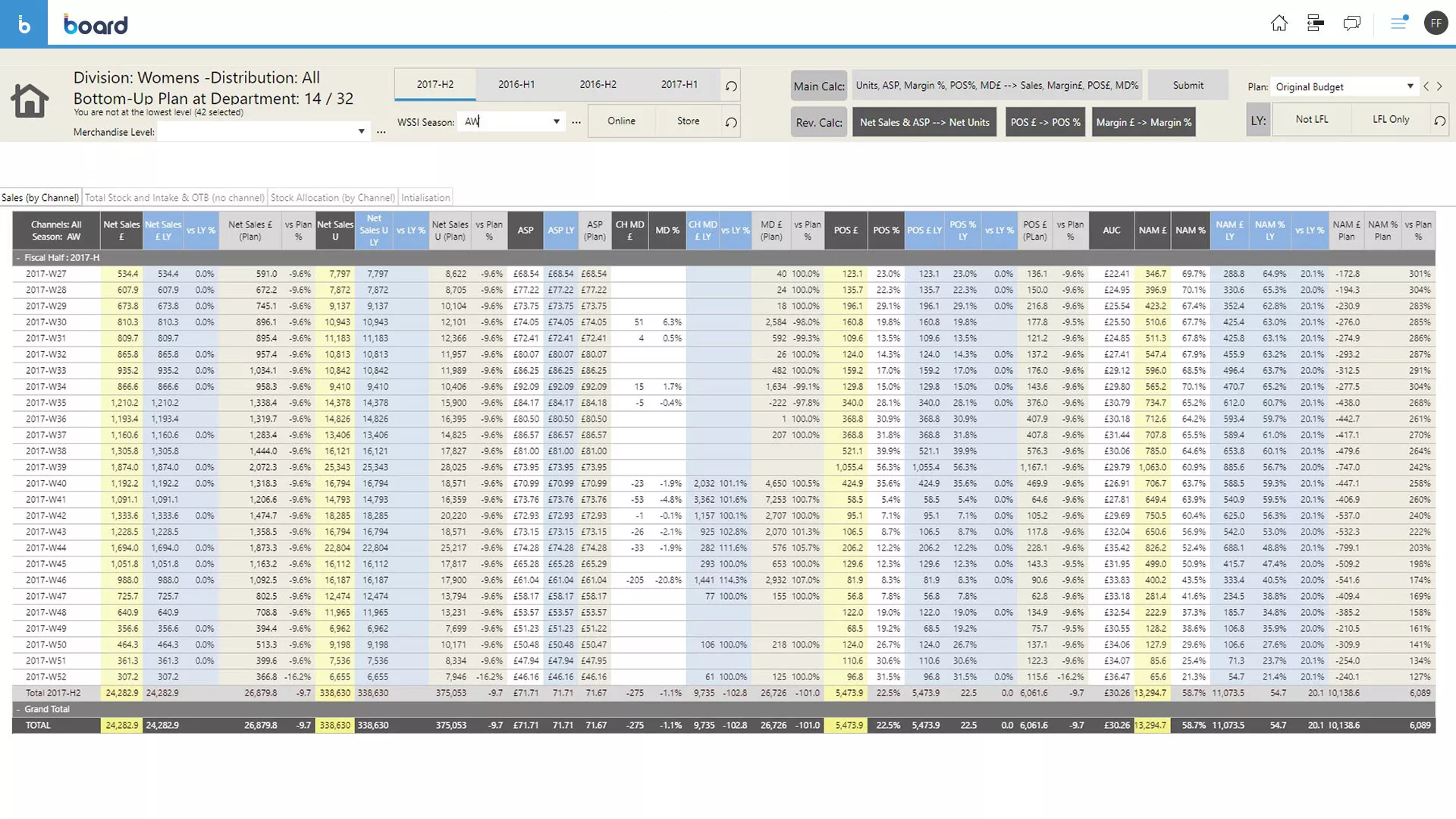
Identify the most profitable inventory approach
Plan multiple brands over different selling channels and seasons, defining future stock requirements aligned to key business metrics
Produce your In-Season Open-to-Buy with ease
Automatically calculate cash investments on a weekly basis to provide optimal stock levels
Drive profitability across products and collections
Quickly identify the most effective approach to planning multiple brands over different selling channels
Minimize the risk of stockouts and overstock
Increased accuracy in stock planning and forecasting reduces waste and increases sales potential
Find the optimal timeframe for markdowns
Run promotions and discounts without affecting usual customer spending by analyzing behavior in relation to sale periods

Enhancing planning decision-making across 2,000+ brands
When we were looking for a solution provider, it was clear that Board would be right for us because of its flexibility.

Unified reporting, merchandise financial planning, and assortment planning





